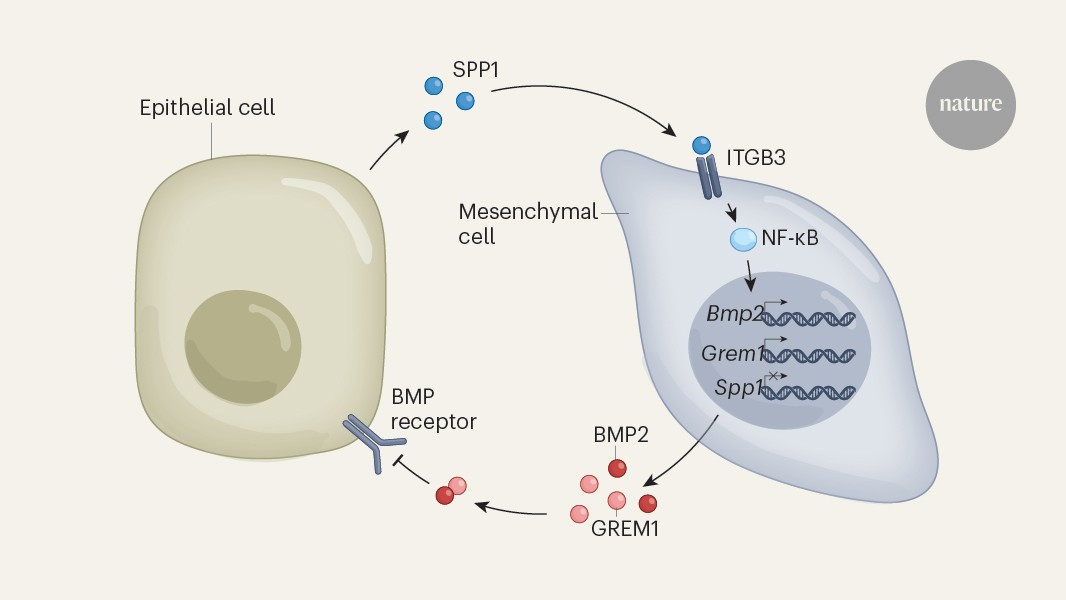
"Tumour progression and spread are influenced by a variety of factors. These include communication between cells, the presence of differing types of cellular lineage in a cancer (tumour heterogeneity) and variations in cellular states (a phenomenon called plasticity, which describes the adaptability of these cells). Plasticity is often coupled to a process called the epithelial-mesenchymal transition (EMT), which is associated with one type of cell (an epithelial cell) losing its usual characteristics and switching to resemble a different type of cell (a mesenchymal cell)."
"Communication between epithelial and mesenchymal cells in pancreatic cancer leads to a poor prognosis. The molecular basis for this signalling has now been revealed. All of the above contribute to a poor prognosis,. Writing in Nature, Li et al. present evidence as to how communication between epithelial and mesenchymal cancer cells promotes tumour heterogeneity and cellular plasticity to drive malignant pancreatic cancer."
Communication between epithelial and mesenchymal cancer cells in pancreatic tumours activates specific molecular signalling pathways that increase tumour heterogeneity and cellular plasticity. These interactions facilitate epithelial–mesenchymal transition (EMT), enabling epithelial cells to adopt mesenchymal traits associated with invasiveness, migration, and metastatic potential. The signalling links cellular crosstalk to enhanced malignancy and correlates with poorer patient prognosis. Identifying the molecular mediators of this intercellular communication reveals targets whose inhibition could reduce plasticity, limit heterogeneity, and impede tumour progression, offering potential therapeutic strategies against aggressive pancreatic cancer.
Read at Nature
Unable to calculate read time
Collection
[
|
...
]